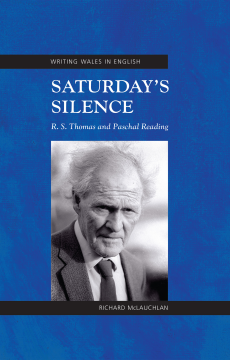
Additional Information
Book Details
Abstract
R. S. Thomas is recognised globally as one of the major poets of the twentieth century. Such detailed attention as has been paid to the religious dimensions of his work has, however, largely limited itself to such matters as his obsession with the ‘absent God’, his appalled fascination with the mixed cruelty and wonder of a divinely created world, his interest in the world-view of the ‘new physics’, and his increasingly heterodox stance on spiritual matters. What has been largely neglected is his central indebtedness to key features of the ‘classic’ Christian tradition. This book concentrates on one powerful and compelling example of this, reading Thomas’s great body of religious work in the light of the three days that form the centre of the Gospel narrative; the days which tell of the death, entombment and resurrection of Christ.
Table of Contents
| Section Title | Page | Action | Price |
|---|---|---|---|
| Front Cover | Front Cover | ||
| Title Page | iii | ||
| Copyright Page | iv | ||
| Dedication | v | ||
| Contents | vii | ||
| Series Editors’ Preface | ix | ||
| Acknowledgements | xi | ||
| Abbreviations | xiii | ||
| Introduction | 1 | ||
| 1. Divine Silence and Theological Language | 17 | ||
| 2. A Poetic Theology of Suffering | 41 | ||
| 3. Silence, Epiphany and Hope | 65 | ||
| 4. Prayer | 93 | ||
| Conclusion | 125 | ||
| Notes | 131 | ||
| Bibliography | 163 | ||
| Index | 173 | ||
| Back Cover | Back Cover |
